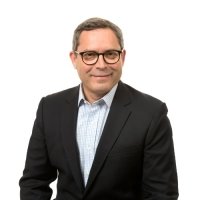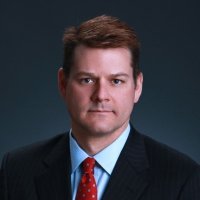Latin America’s Lithium and the Future of Renewable Energy in the United States
Submit a question
The U.S. government has identified lithium as a critical mineral for renewable energy technologies, including electric vehicles, and raised concerns about supply chain vulnerabilities, such as increasing Chinese control over global lithium production. With more than half of the planet’s lithium resources, South America’s Lithium Triangle – Argentina, Bolivia and Chile – will play a critical role in the renewable energy transition in the United States.
So far, however, lithium production in Latin America is not on pace to meet skyrocketing demand. Rising lithium prices are attracting greater investment, but many investors remain skittish, discouraged by resource nationalism and the unpredictable political environment. What role should the U.S. government play in improving the investment climate in the Lithium Triangle? How can the U.S. government channel greater private sector investment to lithium production in Latin America? What role should U.S. battery producers and electric vehicle manufacturers play in assuring adequate supplies of lithium from Latin America and addressing social and environmental considerations?
Selected Quotes
Helaina Matza
“The administration is very aware that this is a pivotal moment as we start to tackle the climate crisis. It is not just a challenge for future generations, but a challenge of today. And the president has been clear since his first [Leaders Summit on Climate] in April… that we’re at an inflection point and have the ability to invest in ourselves and build an equable clean energy future. We know that we don’t have time to waste. And lithium, as well as other minerals like cobalt, nickel, and rare earths, are necessary for us to realize the energy transition away from unabated fossil fuels into the decarbonized energy future. Our ability to deploy clean energy technologies like EVs, large scale battery storage, and wind power depends immensely on these minerals. And there has been a lot of work done at home through our executive order on American supply chains, and the four critical supply chains, including large scale batteries, and our work on critical mineral inputs that weigh heavily on our ability to address this challenge.
But that’s not just at home. A big part of this will be working with allies and partners. Latin America has some of the most abundant concentrations of energy minerals, especially lithium. The region will be a key player moving forward as we work together. And the growing clean energy mineral trade presents economic opportunities for countries in the region that can also benefit the citizens in both those supply and demand countries. So, in short, the U.S. is working with Latin American countries on developing that regional supply chain.”
Stephen Promnitz
“I do think that water is critical. I also think that the impact on the land surface is important.… But just lowering your overall water usage is, I think, a key aspect. Naturally, people are concerned, and the only way to allay those concerns is to clearly enunciate that, have it supported across different levels. And I think that U.S. collaboration with showing how to do these sorts of international environmental and social impact assessments is important. Because we have export credit agency funding coming from the United Kingdom and from Canada, we need to deliver not just on provincial and federal environmental and social guidelines, but also around international norms, so that we can actually deliver on UN Sustainable Development Goals.
So I do think that water, and the same with power, being able to have renewable energy as part of your power mix, it doesn’t mean that it’s 100 percent, but anything that you can do that improves that. Then we’re looking at supply chains and logistics. Unfortunately, that’s still a work in progress. But I think there will be some improvements in how we can actually truck and ship material with better energy usage in the future. These things then will engender more support from ESG investors globally; there’s been a large amount of equities that has gone towards that sector. And I think this is one area that can benefit from it. I’ve seen it going to recycling, for example. And I’ve said, ‘Well, we’re supporting recycling as part of your whole lifecycle, but we actually have to get the raw materials into these batteries first, otherwise, there won’t be anything to recycle.’ And so it’s important that we have those ESG aims.”
Jonathan Evans
“I know the resources in the U.S. and Latin America really well. We’re not going to be independent on lithium in North America anytime soon, if ever. And things like continental brines, [which] are the best resources, are in the Lithium Triangle.”
Guillermo Calo
“The other point, I think it’s access to technology. I think the United States has a lot of development going on on technology. We are looking at lot at that knowledge. Logistics, supply chain, I think it’s another point, there’s some area for synergies there with the U.S. Most of the operations in Argentina are using soda ash coming from the U.S., that’s an opportunity to lower down costs, sending a product to the U.S. And energy, it’s another area where we can improve our energy matrix and our operations with renewable energy, solar. And so, I think a U.S. can also bring a lot of support, technology, and expertise in those areas.”
Speakers




Introduction

Moderator

Independent Energy Expert, Former Jennings Randolph Senior Fellow at the U.S. Institute of Peace
Hosted By

Latin America Program
The Wilson Center’s prestigious Latin America Program provides non-partisan expertise to a broad community of decision makers in the United States and Latin America on critical policy issues facing the Hemisphere. The Program provides insightful and actionable research for policymakers, private sector leaders, journalists, and public intellectuals in the United States and Latin America. To bridge the gap between scholarship and policy action, it fosters new inquiry, sponsors high-level public and private meetings among multiple stakeholders, and explores policy options to improve outcomes for citizens throughout the Americas. Drawing on the Wilson Center’s strength as the nation’s key non-partisan policy forum, the Program serves as a trusted source of analysis and a vital point of contact between the worlds of scholarship and action. Read more


Argentina Project
The Argentina Project is the premier institution for policy-relevant research on politics and economics in Argentina. Read more


Environmental Change and Security Program
The Environmental Change and Security Program (ECSP) explores the connections between environmental change, health, and population dynamics and their links to conflict, human insecurity, and foreign policy. Read more


China Environment Forum
China’s global footprint isn’t just an economic one, it’s an environmental one. From BRI investments in Africa and Asia to its growing presence in Latin America, understanding China’s motivations, who stands to gain - and who stands to lose - is critical to informing smart US foreign policy. Read more
